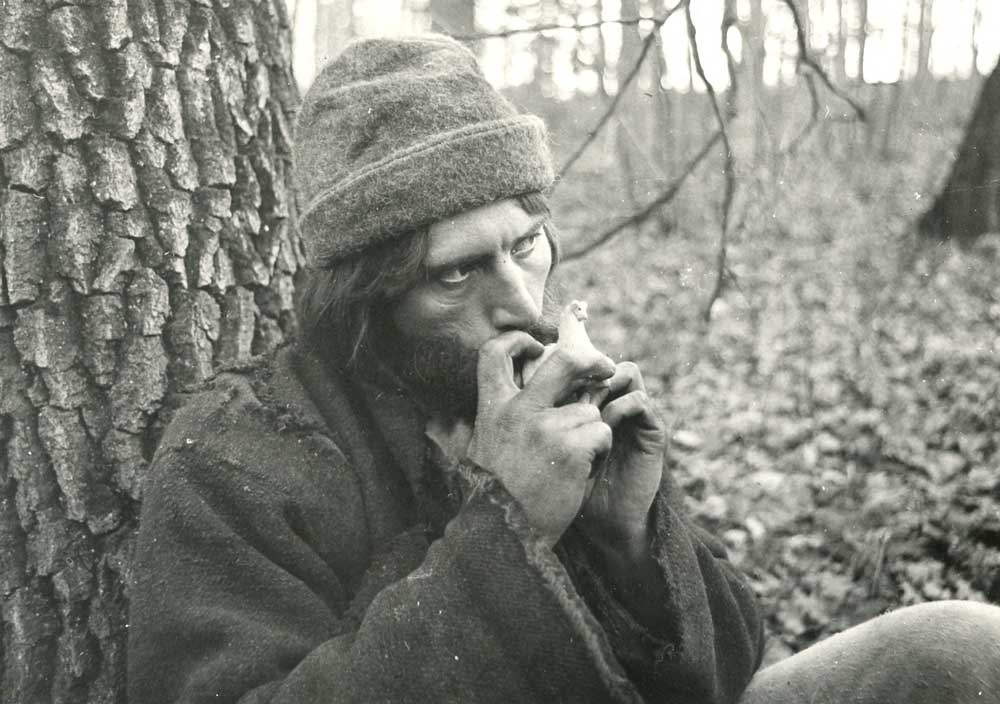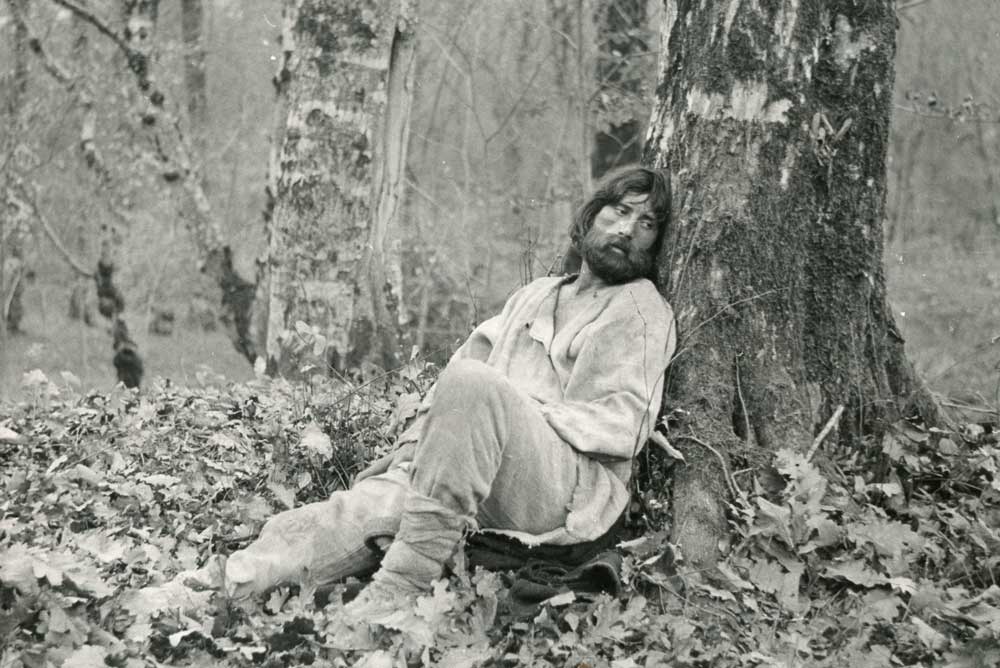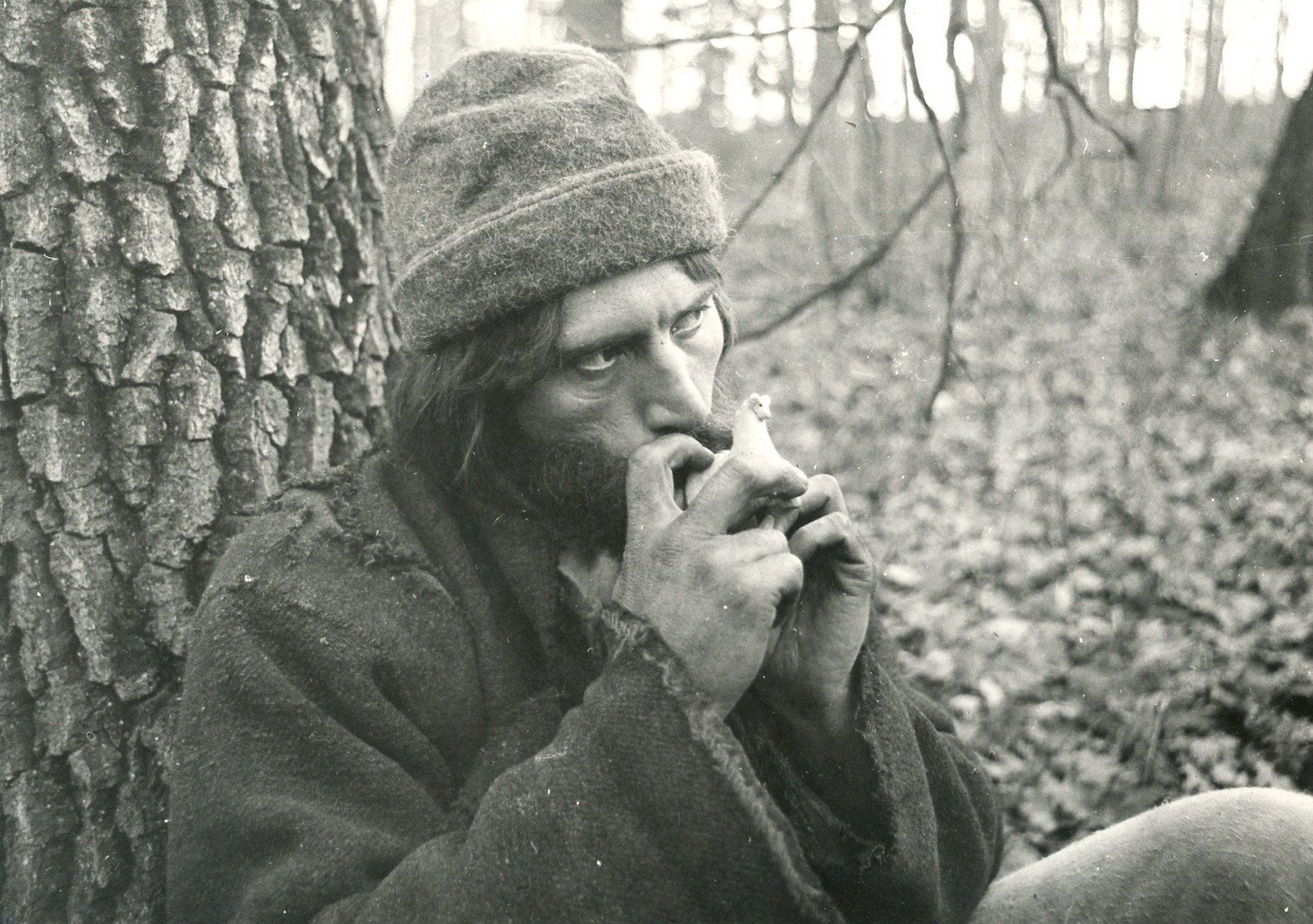
Lone Wolf / Biriuk / Vidliudko
1977
Ukrainian SSR, Oleksandr Dovzhenko Film Studio
73 min
Roman Balaian
Roman Balaian, Ivan Mykolaichuk
Vilen Kaliuta
Mykhailo Holubovych, Oleg Tabakov, Olena Khrol, Yurii Dubrovin, Aleksei Zaitsev, Serhii Brzhestovskyi, Anatolii Mateshko
Foma Kuzmych, also known as Biriuk, is a recluse living in the depths of the forest with his two children, far away from the “noble nests.” He loves nature and protects it so fiercely that the peasants “fear him like fire.”
Roman Balaian’s third feature film was his second foray into 19th-century Russian literary classics. Lone Wolf is an adaptation of the eponymous story by Ivan Turgenev, a Russian nobleman who hated serfdom and, from Paris, described the conflicts between peasants and landlords in his Sportsman’s Sketches.
Dissident film critics often described Balaian’s early period—before Flights in Dreams and Reality—as crisis-ridden and neutral. Critics claimed that within the framework of classical Russian literature during the Stagnation period and the formation of the ‘Soviet Person,’ the Director could quietly hide from the worries of that difficult time.
Despite this, Lone Wolf appears to be a self-sufficient film in its explorations. On one hand, Balaian delicately conveys the spirit of the pivotal moment in Russian Romanticism, which quickly evolved into the pantheistic realism of the “Peredvizhniki” or “Tolstoians.” On the other hand, he distinctly expresses the existential collapse of his male protagonist, a decent nonconformist.
Moreover, while Turgenev’s short story is narrated by a young nobleman who encounters Biriuk in the forest during a horseback ride, Balaian’s central hero is the forester himself and its natural cosmos. Jays, squirrels, deer, and ants sometimes occupy as much screen time as humans. The film’s script, written by Balaian and Ivan Mykolaichuk, includes a remarkably tragic ending to the story, where we find more disdain for wealth and righteous fury even than in the original work.


